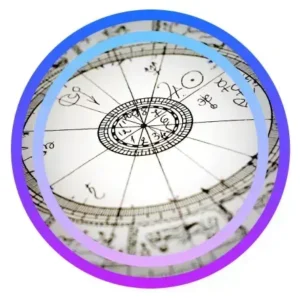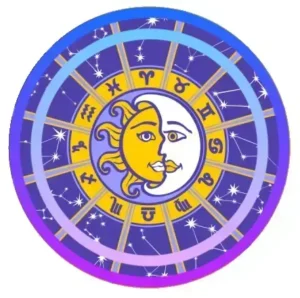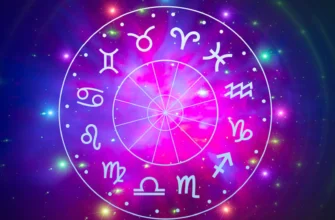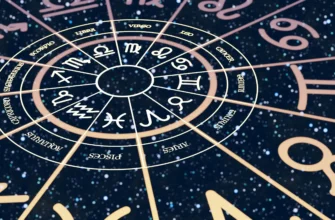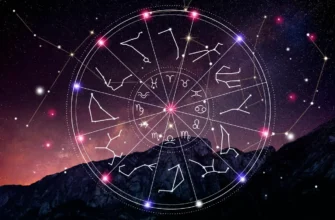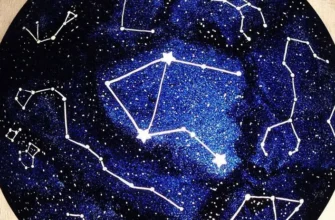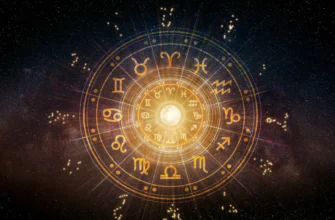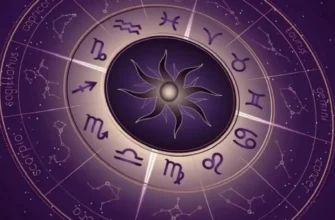Neptune trine Pluto in synastry forges a deep, intuitive bond where imagination merges with transformative power. In synastry chart analysis, Neptune brings sensitivity, creativity, and unconditional love, while Pluto governs intensity, rebirth, and psychological truth.
When these energies blend harmoniously, partners feel seen on a soul level—like they can reveal their deepest fears, desires, and fantasies without judgment. In relationship synastry, this aspect strengthens emotional intimacy and encourages profound personal evolution. Each person helps the other break old patterns, dissolve illusions, and reconnect with purpose. Through synastry chart interpretation, Neptune trine Pluto signals a connection that transcends surface attraction and moves into spiritual or karmic territory. For many, this becomes a life-changing relationship—one where love becomes a catalyst for empowerment. In love compatibility astrology, it reflects a rare synergy: shared transformation without destruction, passion without fear, and devotion that feels both mystical and grounding.
This harmonious aspect in astrology interpretation creates what might be called “empowered idealism,” where Pluto’s capacity for transformation, resource accumulation, and strategic power serves Neptune’s spiritual aspirations, artistic talents, and visionary ideals rather than crushing them through control or exploitation. Understanding this meaning in astrology reveals why certain relationships enable extraordinary creative and spiritual achievements, why some parent-child bonds produce remarkable support for unconventional paths, and how astrological compatibility can unite material success with spiritual purpose in ways that benefit both the practical provider and the idealistic dreamer.
Neptune represents spirituality, art, idealism, dreams, compassion, the subconscious, and transcendent vision that sees beyond material limitations in the Birth Chart. Pluto embodies power, control, transformation, depth, resource accumulation, and the capacity to manifest fundamental change through command of material resources and strategic position. When these outer planets harmonize through the 120-degree trine aspect, Neptune’s spiritual and artistic energies find grounding through Pluto’s practical power and resources, while Pluto’s potentially ruthless materialism becomes ennobled through serving Neptune’s idealistic visions and spiritual purposes.
The trine, as astrology’s most favorable aspect, creates smooth energy flow allowing both planets’ strengths to complement rather than conflict. When Neptune and Pluto trine, the Neptune person feels deeply emotionally attached to Pluto – recognizing them as essential supporter, protector, and enabler of their spiritual and creative work. The Pluto person feels compelled to provide substantial practical help to Neptune, using their resources, power, and transformative capacity to ensure Neptune can pursue artistic and spiritual paths that might otherwise remain impossible due to material constraints.
The Age-Based Dynamic: Spiritual Influence Versus Material Support
Neptune trine Pluto manifests differently depending on which person occupies the older, more established position versus which person is younger and still developing their life path. If the Neptune person is older, their accumulated spiritual wisdom, artistic refinement, and idealistic vision can profoundly influence the younger Pluto person – shaping their values, inspiring their use of power toward noble purposes, and preventing their resource accumulation from becoming purely materialistic or self-serving.
The older Neptune person provides spiritual and artistic education that transforms how younger Pluto uses their emerging power and resources. Instead of becoming ruthlessly materialistic businessperson or power-hungry corporate executive, the Pluto person touched by older Neptune’s influence might channel their capacity for wealth accumulation and strategic control toward purposes serving art, spirituality, healing, or social benefit. Neptune softens Pluto’s hardness without weakening their effectiveness, spiritualizes their materialism without making them impractical, and ensures their power serves transcendent purposes alongside personal success.
More commonly, given generational timing of Neptune and Pluto’s movements, the Pluto person occupies the older, more established position – parent, mentor, patron, or manager – while Neptune person is younger artist, spiritual seeker, or idealistic dreamer still developing their creative and spiritual gifts. In this configuration, the older Pluto person’s practical abilities, accumulated resources, and worldly power provide essential support enabling the Neptune person to engage in spiritual and artistic work that produces slow returns, requires patient development, and might never generate substantial income despite genuine value and beauty.
The Pluto parent or patron essentially says to Neptune artist or spiritual seeker: “I will provide the material foundation – money, housing, connections, protection from harsh economic realities – so you can focus on developing your gifts without compromise or distraction. Your spiritual and artistic work matters more than immediate financial returns. I have resources; you have vision. Together we create something neither could achieve alone.”
When examining horoscope compatibility for parent-child relationships or mentor-artist partnerships, Neptune trine Pluto indicates ideal supportive dynamic where practical power serves spiritual and creative development. The relationship benefits both people – Neptune receives material support enabling artistic and spiritual flourishing, while Pluto gains purpose and meaning transcending mere wealth accumulation or power consolidation.
Couples Working Together: Art, Mysticism, and Psychotherapy
Neptune trine Pluto proves particularly powerful for couples collaborating in fields Neptune naturally governs: art, mysticism, spirituality, healing, psychology, or any work requiring combination of transcendent vision and practical manifestation capacity. The aspect allows both people to enhance each other’s creativity, with Pluto providing structure, resources, and strategic thinking that grounds Neptune’s visions while Neptune provides inspiration, spiritual depth, and artistic sensitivity that prevents Pluto’s work from becoming soulless or purely commercial.
One couple’s story perfectly illustrates this dynamic: both born in 1957 (a year when many people have natal Saturn trine Uranus, creating natural capacity for combining disciplined work with innovative thinking), they studied in Britain on minimal scholarships, living with almost nothing while earning degrees, then moved to America where they built successful business career. Despite achieving substantial wealth, they never forgot their early poverty or lost their spiritual values – naming their daughter with poetic reference to shelter and help for struggling scholars, reflecting their commitment to using resources for noble purposes beyond personal comfort.
Both parents’ Pluto trined their daughter’s Neptune, creating generational pattern where parental resources and practical abilities supported child’s access to good education, spiritual development, and protected environment allowing her to develop idealistic worldview without being crushed by harsh material realities that nearly destroyed her parents during pregnancy and birth when they almost became homeless. The parents worked ruthlessly hard (Pluto’s capacity for sustained effort toward transformation) specifically to create conditions where their daughter could live with greater spiritual and material ease than they experienced.
This couple also benefited from Saturn trine Uranus aspects both natally and in synastry – combining disciplined hard work with innovative capacity, traditional values with progressive thinking. The wife’s previous experience repairing computers (combining practical Saturnian skill with Uranian technological innovation) allowed her to secure high-paying engineering position supporting husband’s continued education despite their scholarship covering only one person. Their mutual Saturn trines created foundation where both could support each other practically while their Pluto-Neptune dynamics ensured material success served spiritual purposes and idealistic values rather than becoming purely self-serving.
In compatibility zodiac analysis for creative partnerships, Neptune trine Pluto indicates both people can work together on projects requiring vision and resources, spirituality and strategy, artistic sensitivity and business acumen. Neither person must sacrifice their essential nature – Neptune remains idealistic and spiritually focused while Pluto remains practical and resource-oriented – yet both energies unite synergistically toward shared creative and spiritual goals.
The Entertainment Industry Pattern: Artists and Managers
The generational timing of Neptune and Pluto creates natural trine between many contemporary artists (born approximately 1970-1984 with Neptune in Sagittarius) and their managers or producers (born approximately 1937-1956 with Pluto in Leo). This forty-to-fifty-year age gap positions older generation with accumulated resources, industry connections, and practical power (Pluto) to support younger generation’s artistic vision, performance talents, and creative idealism (Neptune).
The manager or producer with Pluto provides essential practical support: contract negotiation, financial management, strategic career planning, industry connections, protection from exploitation, and business infrastructure allowing artist to focus on creative work rather than practical survival. The artist with Neptune provides what manager ultimately seeks – transcendent creative work generating meaning, beauty, and cultural impact transcending mere commercial success or wealth accumulation.
This relationship benefits both parties when functioning well: the artist achieves material success and sustainable career impossible without manager’s practical support and industry savvy, while the manager gains purpose and legacy through association with genuine artistic achievement rather than purely commercial ventures. The trine ensures this collaboration remains generally harmonious – Pluto doesn’t exploit or control Neptune excessively, Neptune doesn’t resent or rebel against Pluto’s practical management, and both recognize their mutual dependency and complementary strengths.
However, the aspect doesn’t guarantee perfect relationship or eliminate all conflicts. Personal compatibility issues, communication challenges, or value differences around artistic integrity versus commercial success might create friction. The trine simply ensures that fundamental energetic relationship between spiritual/creative Neptune and practical/powerful Pluto supports rather than undermines their collaboration, making problems negotiable rather than relationship-destroying.
When using a Free Synastry Chart to assess artist-manager or creator-producer partnership potential, Neptune trine Pluto indicates strong foundation for long-term collaboration serving both parties’ interests. The aspect suggests they can weather industry changes, personal challenges, and creative evolution without losing fundamental appreciation for each other’s contributions and mutual benefit from continued collaboration.
The Parental Support Example: When Mixed Aspects Create Complex Outcomes
One example illustrates how Neptune trine Pluto’s benefits can be undermined or complicated by other challenging aspects in the synastry chart: a father whose Pluto trined his son’s Neptune, suggesting potential for father supporting son’s artistic development through his considerable wealth. The trine created energetic foundation where father should naturally want to support son’s creative and spiritual pursuits, recognizing that artistic work produces slow returns yet possesses genuine value deserving patience and sustained investment.
Unfortunately, the son’s Pluto squared the father’s Uranus – a challenging aspect discussed in previous analysis indicating the Pluto person (son) relentlessly pursues the Uranus person (father) like karmic debt collector, creating pressure and compulsion the father cannot escape despite resentment and frustration. This square created dynamic where son constantly demanded money from father not for artistic development (which Neptune trine Pluto would support) but for business ventures that consistently failed due to the Uranus-Pluto square’s destructive karmic pattern.
The father, caught between Neptune trine Pluto’s natural inclination to support son’s artistic path and Uranus square Pluto’s karmic obligation to provide resources despite wasteful use, watched helplessly as son rejected slow but sustainable artistic career in favor of repeatedly failed business ventures consuming far more money than artistic development would require. The limited investment nurturing artist needs – art supplies, education, living expenses during development period – pales compared to endless losses from business failures driven by challenging Uranus-Pluto aspect overriding Neptune-Pluto trine’s beneficial potential.
This example teaches crucial lesson about synastry interpretation: no single aspect operates in isolation. Multiple aspects between same two people create complex patterns where some dynamics support relationship success while others undermine it. The most beneficial aspects (like Neptune trine Pluto) can be overwhelmed by more challenging aspects (like Uranus square Pluto) creating overall pattern where potential benefits never manifest because other karmic patterns dominate interaction.
In astrology and horoscope analysis incorporating comprehensive synastry examination, checking all major aspects between two charts prevents overestimating single positive aspect’s benefits while missing multiple challenging aspects creating overall problematic pattern. Neptune trine Pluto indicates potential for spiritual and creative support – but actualizing that potential requires absence of overwhelming negative aspects destroying relationship’s functional capacity.
Emotional Attachment and Practical Help: The Two-Way Flow
Neptune trine Pluto creates particular emotional and practical dynamic distinguishing it from other beneficial aspects: the Neptune person usually feels deeply emotionally attached to Pluto – experiencing them as essential protector, provider, and enabler of their spiritual and creative life. This attachment transcends ordinary friendship or even romantic love – it’s profound gratitude mixed with recognition that Pluto makes Neptune’s idealistic life possible, that without Pluto’s practical support and resources, Neptune’s dreams would remain unrealized fantasies crushed by harsh economic realities.
This emotional attachment might appear asymmetrical – Neptune feeling more dependent and grateful than Pluto – yet Pluto benefits equally through different mechanism. Pluto feels compelled (almost karmically obligated) to provide substantial practical help to Neptune, using their resources and power to ensure Neptune can pursue spiritual and artistic work. This compulsion doesn’t feel burdensome to Pluto; it feels like purpose, meaning, and noble use of their accumulated power and wealth.
Pluto often struggles with question of why they possess resources and power – is it merely for personal comfort and ego gratification, or does it serve larger purpose? Neptune provides answer: Pluto’s resources enable transcendent work, support beauty and spirituality entering world, and facilitate human evolution toward higher consciousness. Without Pluto’s practical support, Neptune’s visions remain trapped in idealistic imagination. With Pluto’s help, those visions manifest as actual art, functional healing modalities, or spiritual teachings reaching people and transforming lives.
The two-way flow creates sustainable relationship: Neptune provides meaning and spiritual purpose ennobling Pluto’s material success, while Pluto provides practical foundation and resource support enabling Neptune’s spiritual and creative flourishing. Neither person uses or exploits the other – both genuinely serve each other’s highest expression and evolutionary development.
When consulting a Synastry Chart Calculator for relationship sustainability and mutual benefit, Neptune trine Pluto indicates both people gain substantially from relationship while neither feels exploited, controlled, or diminished by the other’s influence. The emotional attachment and practical help create virtuous cycle where both people’s wellbeing and development reinforce each other rather than competing.
Generational Dynamics and Marriage Timing
The document mentions that people born in specific years carry particular natal aspect patterns affecting their marriage compatibility and life success when partnering with same-age spouses versus different-age partners. For example, people born in 1958 generally have natal Uranus square Neptune, suggesting internal conflict between revolutionary impulses and spiritual ideals that creates challenges when marrying same-age spouse who carries identical internal conflict – their mutual Uranus-Neptune squares in both natal charts and synastry create compounded instability and confusion potentially overwhelming relationship.
Conversely, people born in 1957 often have natal Saturn trine Uranus, suggesting internal harmony between discipline and innovation that supports both personal success and relationship stability when marrying same-age spouse. Their mutual Saturn-Uranus trines create double benefit – both individuals possess balanced capacity for hard work and creative thinking, and their synastry Saturn-Uranus trines create additional support allowing them to encourage each other’s balanced expression of these energies.
This generational consideration becomes relevant for Neptune trine Pluto because the aspect typically appears between different age cohorts – Neptune in Sagittarius (1970-1984) trines Pluto in Leo (1937-1956) – rather than between same-age partners. The forty-to-fifty-year age gap positions Neptune trine Pluto as primarily parent-child, mentor-student, or manager-artist aspect rather than romantic partnership aspect between peers.
However, when Neptune trine Pluto does appear in romantic relationships with significant age differences, it can create powerful dynamic where older partner’s resources and worldly power support younger partner’s spiritual and artistic development, while younger partner’s idealism and creative vision revitalizes older partner’s sense of purpose and prevents their success from becoming empty materialism. The relationship serves both practical and spiritual functions – providing younger partner material security enabling creative development while providing older partner meaning and renewed inspiration preventing late-life cynicism or existential emptiness.
In Free Birth Chart analysis considering both individual natal patterns and synastry compatibility, examining generational aspects inherited by entire age cohorts helps identify which birth years naturally harmonize versus which create compounded challenges when people of those years form relationships.
The Poverty-to-Success Trajectory: Neptune-Pluto Transformation
The couple’s story illustrates classic Neptune trine Pluto manifestation pattern: beginning in extreme poverty (Neptune’s vulnerability to material deprivation), facing potential homelessness during pregnancy (Neptune’s dissolution of material security), yet maintaining idealistic values and spiritual purpose (Neptune’s transcendent vision) even while developing ruthless work ethic and strategic career building (Pluto’s transformative power and resource accumulation capacity).
Their daughter’s birth during their poorest period marked turning point – after her birth, their fortunes improved as they successfully applied to study abroad and their financial situation gradually strengthened. This timing suggests the child herself, carrying Neptune in harmonious aspect to both parents’ Plutos, somehow catalyzed their transformation from struggling poverty to eventual success. Her presence gave them compelling reason to develop their Plutonian capacities for wealth generation and strategic career advancement – not for selfish reasons but to ensure their child could develop spiritually and creatively without the crushing material deprivation they experienced.
The parents’ Neptune-Pluto dynamics with their daughter also created protective container where she could maintain idealistic worldview, engage with artistic and spiritual pursuits, and develop sensitivity and compassion that harsh poverty might have destroyed. Parents essentially absorbed material struggles so daughter could preserve Neptunian qualities – innocence, idealism, artistic sensitivity – that would have been casualties of direct confrontation with brutal economic realities during childhood.
This protective dynamic appears frequently in Neptune trine Pluto parent-child relationships: parents work ruthlessly (Pluto) specifically to create conditions where children can remain spiritually and artistically open (Neptune) without that openness making them vulnerable to exploitation or crushing disappointment. Parents provide material foundation; children provide spiritual meaning and idealistic purpose ennobling parents’ material success.
Conclusion: When Power Serves Beauty and Dreams Fund Reality
Neptune trine Pluto in synastry ultimately represents ideal collaboration between transcendent vision and material power – a relationship where spiritual and artistic idealism receives practical support and resource backing enabling actual manifestation, while accumulated wealth and worldly power gains noble purpose and spiritual meaning through service to beauty, healing, and human evolution toward higher consciousness.
The aspect creates relationships where neither person must sacrifice their essential nature – Neptune remains idealistic, spiritual, and artistically sensitive while Pluto remains practical, resource-oriented, and strategically powerful – yet both energies unite synergistically rather than conflicting. Neptune doesn’t need to “get real” or abandon dreams to receive Pluto’s support; Pluto doesn’t need to become less powerful or practical to honor Neptune’s spirituality. Each remains fully themselves while serving the other’s highest expression.
For those exploring their Synastry online connections and discovering Neptune trine Pluto in significant relationships, recognizing this aspect’s potential helps both people consciously optimize the dynamic: Neptune person can receive Pluto’s practical support without guilt or shame about not being “practical enough,” while Pluto person can provide resources and power without fearing they’re enabling irresponsible escapism or impractical fantasy. The trine ensures that Neptune’s idealism remains grounded enough to manifest tangibly (through Pluto’s structural support) while Pluto’s materialism remains ennobled enough to serve transcendent purposes (through Neptune’s spiritual influence).
Understanding Neptune trine Pluto means recognizing that material success and spiritual purpose need not conflict, that practical power can serve transcendent vision, and that relationships uniting these seemingly opposite energies create possibilities neither energy achieves alone – beauty funded by resources becomes sustainable rather than starving, while wealth directed toward spiritual and creative purposes generates meaning transcending mere accumulation. The aspect teaches that dreamers need practical patrons, that power-holders need idealistic visions worth serving, and that evolution toward higher consciousness requires both Neptune’s transcendent aspirations and Pluto’s transformative capacity to manifest those aspirations in material reality where they can actually touch and transform human lives.


